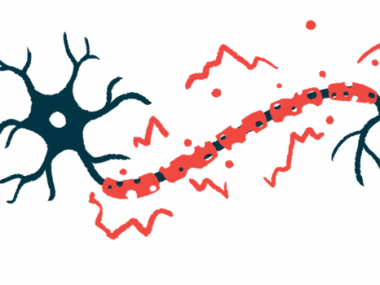Voyager Therapeutics’ Potential Gene Therapy Program for FA Moving Toward Pre-Clinical Stage
Written by |

Voager Therapeutics has announced that its Friedreich’s ataxia program, VY-FXN01, is taking steps to initiate preclinical tests of its safety and effectiveness, the company expects to achieve in a two-year period the needed requirements to proceed to treatment testing in Friedreich’s ataxia patients.
“Voyager’s exceptional performance and accomplishments during 2016 created strong momentum for the company for 2017 and beyond as we continue to focus our efforts on developing gene therapies for devastating diseases of the CNS,” said Steven Paul, president and CEO of Voyager Therapeutics, in a press release.
Based in Cambridge, Mass., Voyager Therapeutics is focused on the development of gene therapies for the treatment of severe central nervous system diseases that lack effective treatment strategies, such as advanced Parkinson’s disease, a monogenic (caused by a single gene) form of ALS, Friedreich’s ataxia, Huntington’s disease, and Alzheimer’s disease.
A previous study showed that gene therapy strategies can have the potential to overcome the frataxin (FXN) deficiency found in Friedreich’s ataxia. Based on advanced viral vectors gene delivery technology, Voyager researchers were able to promote the expression of FXN in human brain sample tissues, including in regions often affected in Friedreich’s ataxia.
Under the supervision of Dinah Sah, chief scientific officer of Voyager Therapeutics, the Friedreich’s ataxia program has continued pursuing potential lead candidates. Currently in preclinical development, VY-FXN01 is undergoing optimization processes in order to achieve the best FXN expression and distribution, according to specific safety standards.
In addition, the company has initiated tests with a new genetic mouse model of Friedreich’s ataxia, focusing in improving the knowledge on the clinical course of the disease and identification of potential clinical endpoints for clinical trials.
In the next 24 months, the company intends to complete preclinical studies evaluating the safety and effectiveness of the lead candidate VY-FXN01 program, and file an investigational new drug (IND) application in accordance with Food and Drug Administration (FDA) requirements to start human clinical trials.
“Our pipeline programs are rapidly progressing with three INDs planned within the next 24 months for our monogenic ALS, Huntington’s disease, and Friedreich’s ataxia programs. During the year, we allocated capital wisely toward our manufacturing capabilities and vector engineering platform providing us with a strong foundation for the transformative years ahead,” Paul said.





